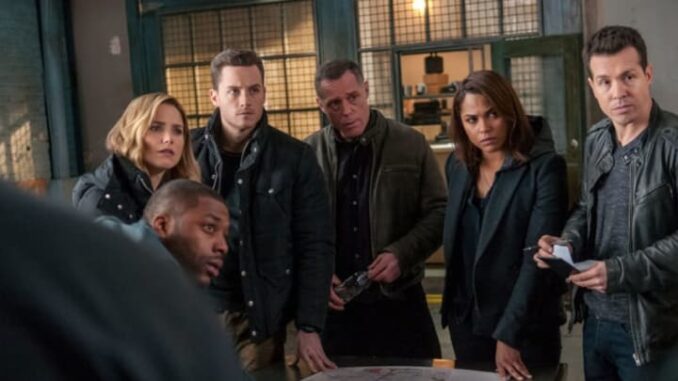
The Relentless Engine: How Chicago PD Drives the One Chicago Momentum
In the sprawling television landscape, the One Chicago franchise stands as a testament to the power of serialized storytelling and the captivating allure of dedicated professionals serving their city. While all three shows – Chicago Fire, Chicago Med, and Chicago PD – contribute their unique flavors, it is arguably Chicago PD that serves as the relentless engine, driving the overall momentum and ensuring the continued success of the entire lineup. Through its gritty realism, complex characters grappling with moral ambiguities, and high-stakes procedural narratives, Chicago PD injects a vital dose of adrenaline into the heart of One Chicago, setting a powerful pace for its sister shows.
One of the primary ways Chicago PD fuels the franchise's momentum is through its unflinching portrayal of the harsh realities of law enforcement. While Chicago Fire offers heroic rescues and Chicago Med showcases life-saving medical interventions, Chicago PD dives into the morally gray areas where justice isn't always black and white. Detective Hank Voight and his Intelligence Unit operate in a world of informants, undercover operations, and difficult choices, forcing viewers to confront uncomfortable truths about the sacrifices and compromises made in the pursuit of safety. This willingness to push boundaries, to explore the darker underbelly of the city, lends a raw authenticity that resonates with audiences seeking more than just escapism. It's this grittiness, this refusal to shy away from the complexities of crime and punishment, that draws viewers in and keeps them invested.
Moreover, the show’s carefully constructed and compelling characters contribute significantly to its driving force. Voight, a morally ambiguous figure, serves as the linchpin. His unwavering commitment to his team, coupled with his willingness to bend or even break the rules, creates a fascinating dichotomy that constantly challenges viewers' perceptions of justice and morality. Similarly, the individual journeys of the other members of the Intelligence Unit – from the steadfast integrity of Jay Halstead to the evolving ethics of Hailey Upton – provide a rich tapestry of perspectives and internal conflicts. These characters are not simply law enforcement officers; they are individuals grappling with personal demons, navigating complex relationships, and constantly evolving in response to the difficult cases they face. Their struggles, their vulnerabilities, and their unwavering dedication to protecting Chicago are what make them so compelling and keep viewers emotionally invested.
Beyond character development and moral complexities, Chicago PD's high-stakes procedural narratives provide a consistent stream of gripping storylines that keep audiences on the edge of their seats. From tracking down serial killers to dismantling drug cartels, the cases tackled by the Intelligence Unit are often intricate and emotionally charged. The show expertly blends procedural elements with character-driven drama, ensuring that each episode is not only a thrilling investigation but also a compelling exploration of the human cost of crime. This skillful balance allows the show to maintain a high level of tension and suspense while also delving into the emotional toll that law enforcement takes on its practitioners. The constant barrage of high-pressure situations, coupled with the unpredictable nature of crime, keeps the narrative fresh and engaging, ensuring that viewers are always eager to see what challenges the Intelligence Unit will face next.
Furthermore, the clever integration of crossover episodes further solidifies Chicago PD's role as a driving force within the One Chicago universe. These events, where characters from all three shows converge to address a particularly complex or large-scale emergency, not only provide exciting and dynamic storytelling opportunities but also highlight the interconnectedness of the three professions. Chicago PD often takes the lead in these crossovers, its detectives investigating the initial crime or providing the crucial information needed to unravel the mystery. This positions the show as a central hub, connecting the other two series and further enhancing the overall momentum of the franchise.
In conclusion, Chicago PD's unflinching realism, complex characters, high-stakes narratives, and strategic use of crossovers all contribute to its role as a relentless engine, driving the momentum of the entire One Chicago lineup. By exploring the darker corners of the city and the morally ambiguous choices faced by law enforcement, the show offers a gritty and compelling perspective that resonates with audiences seeking more than just formulaic procedural drama. Through its compelling characters and their unwavering dedication to protecting Chicago, Chicago PD ensures that the One Chicago universe continues to captivate viewers and remains a dominant force in the television landscape. The show's willingness to push boundaries and explore the complexities of justice is what ultimately fuels its success and cements its position as a vital component of the One Chicago franchise.
